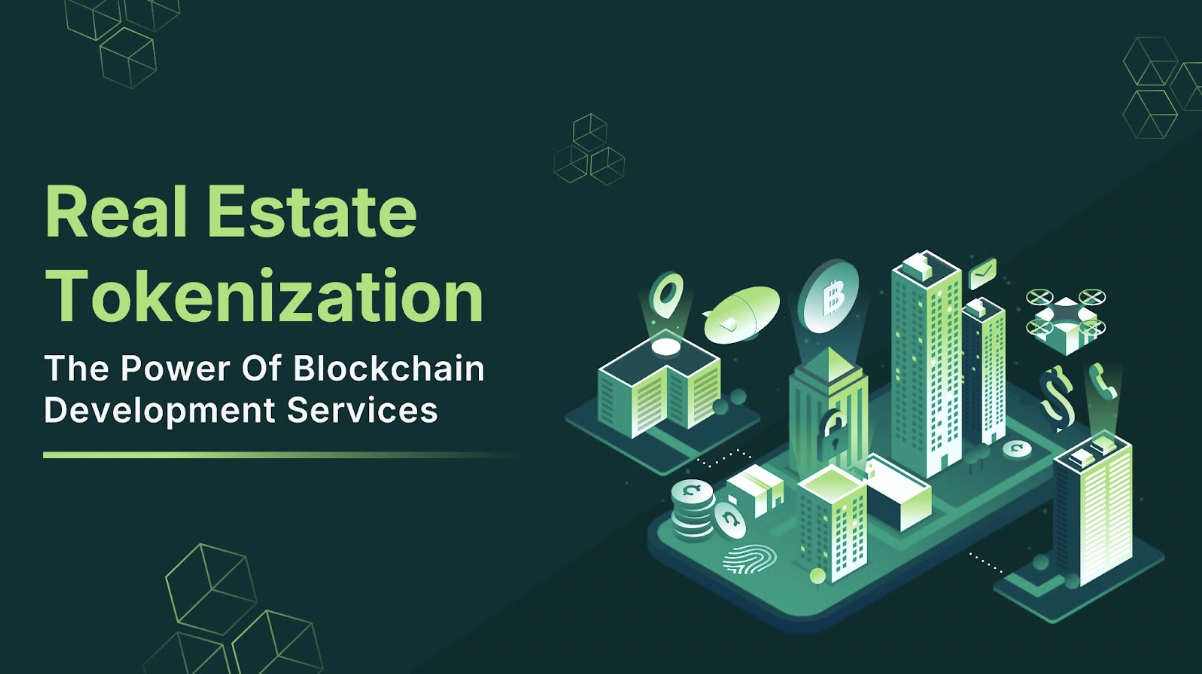
The first noteworthy real estate tokenization occurred in 2017 when a property in Manhattan was tokenized. Since then, being a future-oriented approach, decentralized and tokenization of real estate has shown significant growth. However, due to the intricacies involved while practicing tokenization, a real estate tokenization development company plays a vital role in overcoming the hindrance and complexity by offering due diligence and legal support.
Real estate tokenization is made easy and insightful by leveraging blockchain development services. Decentralized real estate is a proven strategy to enhance the liquidity and efficiency of the real estate industry with digital assets and decentralization.
The efficient conversion of the ownership or share of real estate properties into digital tokens using blockchain development solutions in 2025 will transform the investing approach of real estate enthusiasts.
With real estate tokenization development, investors purchase fractional ownership with asset digitization, eliminating the need for large sums of capital. Additionally, real estate investments are illiquid, but with tokenization, trading the digital token on decentralized exchange platforms has become effortless, making the buying and selling process easy and quick. On top of that, the implementation of blockchain solutions and digital automated deals replaces conventional real estate deals with blockchain smart contracts.
Blockchain-based real estate tokenization development services benefit investors, property dealers, real estate agents, and real estate companies in the following ways:
Before the introduction of real estate tokenization, investing was always painful for real estate investors. Unlike the customary method, tokenized real estate is a relief for new as well as former investors. When real estate ownership is fractionalized while tokenization increases liquidity, it improves market accessibility and attracts new real estate investors.
The blockchain-based real estate presents a decentralized financial system free from dependency. Tokenized real estate contributes to increased liquidity, 24/7 Global Access, Asset fractionalization, Lower transaction costs, and simplified transfer of ownership, ensuring a free-flowing market
Rather than relying on centralized and traditional methods (bank loans or large-scale equity investors) for raising capital, property dealers get access to a wider pool of investors with tokenized real estate projects. This creates better opportunities for selling real estate projects, simplifying the fundraising process.
Real estate tokenization development attracts more retail investors by expanding the pool of potential investors by lowering the minimum threshold for investment. This results in a broader investor base, improving liquidity and demand for property.
Automated smart contracts in real estate eliminate any human role in conducting real estate sales, facilitating non-biased sales. Blockchain also ensures a reduced chance of disputes and builds credibility with streamlined and fast transactions.
1. Propy's Tokenized Real Estate Sale in Ukraine
Propy is the first-ever blockchain-based real estate platform to facilitate the first blockchain-based real estate transaction for property in Ukraine in 2017. Prophy uses blockchain technology to tokenize real estate property, allowing seamless transactions. End-to-end support and storage of transactional data ensured immutable and secure transactions.
2. RealT Platform - Detroit Real Estate
Tokenization in Detroit by the RealT Platform sets a great example of blockchain application in real estate tokenization. By tokenizing many properties in Detroit, it provided fractional ownership to investors worldwide. Using an Ethereum-based blockchain network, RealT has liberalized real estate investing and enabled investors to participate in U.S. markets even if they are situated in different parts of the world.
3. Swiss Real Estate Tokenization by Blockimmo
Blockimmo, a real estate tokenization platform, completed the tokenization project of real estate property in Switzerland in the year 2018. It also demonstrated how tokenization could make the property more accessible while also ensuring legal compliance.
4. RealBlocks Tokenization of Global Real Estate Funds
RealBlocks has also transformed real estate sales by tokenizing global real estate funds, allowing users to buy fractional ownership of large-scale real estate portfolios using blockchain solutions.
The adoption of custom blockchain development solutions in real estate is seen as a revolutionary step towards more transparent, secure, fast, and efficient property dealing. Nadcab Labs is a real estate tokenization development company that uses blockchain networks to simplify investing operations while ensuring automation, security, and efficiency through smart contracts. There is no room for doubt that the increased real-life use of blockchain-based real estate tokenization will encourage more young investors to adopt asset digitization.